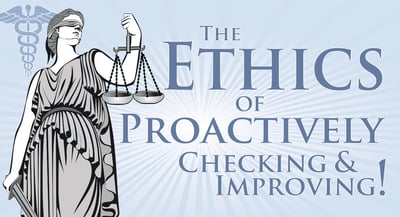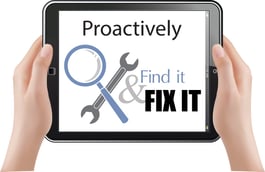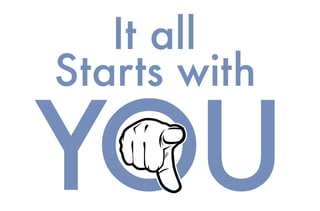
Tracers, Checklists, Rounds, Audits, Observations—whatever you want to call them, we in health care, have access to an array of methods of checking the reliability of systems and processes to improve care, patient safety, patient experience, and patient satisfaction.
However, the one critical component often disregarded is the use of checking for Performance Improvement.

Considering this, it’s unfortunate that many healthcare organizations struggle with proactively checking with performance improvement in mind.
The common theme is that conducting proactive operational quality checks is only done when there is time or when a known survey is imminent.
Granted, there are all kinds of reasons (excuses) for this: the culture of the organization, lack of staffing, “this is how we have always done it”, etc.
But we must ask ourselves: "Is this ethical?"
Commonly, when meeting with hospital administrators, I find myself comparing the hospital industry to the commercial aviation industry in the U.S.
This particular comparison is so powerful because the airline industry has an overall great safety record.
One of the paramount reasons for that is the commitment to proactively checking the reliability of systems.
How comfortable would you be if you knew the preflight checklists were only conducted if there was enough time? Or only if the FAA was snooping around?
Now, bridging the comparison to  health care, how comfortable would you feel if you were ill at a hospital and noticed that proper hand hygiene was not being performed regularly?
health care, how comfortable would you feel if you were ill at a hospital and noticed that proper hand hygiene was not being performed regularly?
Such issues can be improved with an organizational commitment to proactively checking processes.
Using the Hand Hygiene with regard to Patient Safety scenario, how much safer would the patients, visitors and staff of a hospital be if there was a proactive round or checklist consistently done, where Hand Hygiene practices were audited through both observation and staff interview?
Furthermore, this allows for easy, on the spot education of observed less-than-best practices.
I urge you: think of the benefits that would have on lowering healthcare associated infections (HAI’s).
If every time a patient died of an HAI and the media gave it the same exposure as a commercial airliner crash, would we even be having this conversation?
If the media scenario were true, I would safely assume hospitals would either immediately become high reliability organizations or close their doors.
Depending on what study you look at, it has been established that some 400,000 patients die each year in hospitals for reasons unrelated to their initial admittance.
Preventable medical errors are currently the number three killer in the U.S., lagging only behind heart disease and cancer. This is simply unacceptable! 
These kinds of cultural changes must be pushed top-down; hospital leadership aiming the organization in the proper direction by empowering lower level managers to have the ability to:
Why? Because it’s the right thing to do... not just because you’re in a “survey window.”
Previous Post: Patient Satisfaction & Experience, The 8 Fundamentals Often Ignored
